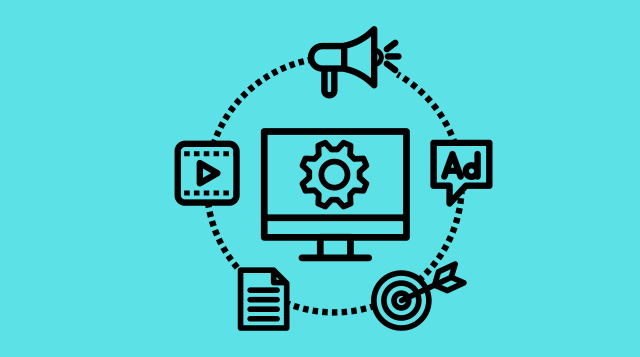The 10 most effective methods of online marketing:
Online marketing has become a crucial aspect of business success in the digital age. With the vast majority of consumers using the internet to research, compare, and purchase products and services, having a strong online presence and effective marketing strategies is essential.
The 10 most effective methods of online marketing:-
1. Search Engine Optimization (SEO):
SEO involves optimizing your website and its content to rank higher in search engine results for relevant keywords. This increases visibility and drives organic (non-paid) traffic to your site. Effective SEO strategies include keyword research, on-page optimization, content creation, and link building.
2. Pay-Per-Click (PPC) Advertising:
PPC advertising, such as Google Ads, allows you to display ads at the top of search engine results pages for specific keywords. You pay a fee each time someone clicks on your ad, making it a highly targeted and measurable form of advertising.
3. Content Marketing:
Creating and distributing valuable, relevant, and consistent content (e.g., blog posts, videos, infographics) can attract and retain a clearly-defined audience. Effective content marketing establishes your brand as a thought leader and drives organic traffic to your website.
4. Social Media Marketing:
Utilizing social media platforms like Facebook, Instagram, Twitter, and LinkedIn to promote your brand, engage with your audience, and drive traffic to your website is essential in today’s digital landscape. Social media marketing also allows for targeted advertising and influencer marketing.
5. Email Marketing:
Building an email list and sending regular newsletters, promotional emails, and automated email campaigns can nurture leads, build customer relationships, and drive sales. Effective email marketing requires a strong strategy, compelling content, and adherence to best practices.
6. Influencer Marketing:
Partnering with influential people in your industry or niche (e.g., bloggers, social media personalities) to promote your products or services can tap into their loyal followings and improve brand awareness and credibility.
7. Video Marketing:
Creating and sharing engaging video content (e.g., product demonstrations, tutorials, behind-the-scenes) on platforms like YouTube, social media, and your website can increase visibility, drive traffic, and boost conversions.
8. Affiliate Marketing:
Partnering with affiliates who promote your products or services on their websites or platforms in exchange for a commission on sales can expand your reach and tap into new audiences.
9. Mobile Marketing:
With the increasing use of smartphones and tablets, optimizing your website and marketing efforts for mobile devices (e.g., responsive design, mobile advertising) is crucial for reaching and engaging with customers on-the-go.
10. Analytics and Data-Driven Marketing:
Utilizing tools like Google Analytics, social media analytics, and customer relationship management (CRM) software to track, analyze, and optimize your marketing efforts based on data and insights can improve ROI and overall effectiveness.
It’s important to note that the most effective online marketing strategy often involves a combination of these methods, tailored to your specific business goals, target audience, and industry. Continuous testing, adapting, and refining your approach is key to staying ahead in the ever-evolving digital marketing landscape.

Also Read: “Satyanashi plant” which makes medicine for many diseases .
Frequently asked questions (FAQs) about online marketing:
1. What is online marketing?
ANS:- Online marketing, also known as internet marketing or digital marketing, refers to the promotion of products or services through various online channels and platforms.
2. Why is online marketing important?
ANS:- Online marketing is crucial because it allows businesses to reach a vast audience, target specific demographics, track and measure results, and adapt strategies in real-time. With more consumers relying on the internet to research and make purchasing decisions, having an online presence is essential for businesses to remain competitive.
3. What are the main types of online marketing?
ANS:- The main types of online marketing include search engine optimization (SEO), pay-per-click (PPC) advertising, social media marketing, content marketing, email marketing, influencer marketing, affiliate marketing, video marketing, and mobile marketing.
4. How does SEO work?
ANS:- SEO involves optimizing a website’s content, structure, and technical aspects to rank higher in search engine results for relevant keywords. This helps increase organic (non-paid) traffic to the website.
5. What is the difference between organic and paid online marketing?
ANS:- Organic online marketing refers to unpaid methods like SEO, content marketing, and social media marketing, which aim to attract visitors naturally. Paid online marketing includes PPC advertising, influencer marketing, and other tactics that involve paying for visibility or promotion.
6. How do I measure the success of my online marketing campaigns?
ANS:- Success can be measured through various metrics such as website traffic, leads or sales generated, conversion rates, engagement rates (likes, shares, comments), return on investment (ROI), and customer acquisition costs.
7. How do I choose the right online marketing channels for my business?
ANS:- The choice of online marketing channels depends on your business goals, target audience, industry, and budget. Conduct market research, analyze your competitors, and test different channels to determine the most effective strategies for your business.
8. How often should I update my online marketing strategies?
ANS:- Online marketing strategies should be regularly reviewed and updated to keep up with changing consumer behavior, algorithm updates, and industry trends. Continuous testing, analysis, and optimization are key to maintaining effective online marketing campaigns.
9. Do I need a dedicated team or agency for online marketing?
ANS:- While some businesses handle online marketing in-house, others choose to outsource to a specialized agency or freelancers. The decision depends on your budget, resources, and the complexity of your online marketing needs.
10. How much should I budget for online marketing?
ANS:- The budget for online marketing varies depending on the size of your business, industry, and the specific channels and strategies you plan to use. Generally, businesses allocate a percentage of their overall marketing budget to online marketing efforts.
These FAQs cover some of the most common questions and concerns regarding online marketing. Remember, online marketing is constantly evolving, so it’s important to stay up-to-date with the latest trends and best practices.

Read More: The 10 most effective methods of online marketing

